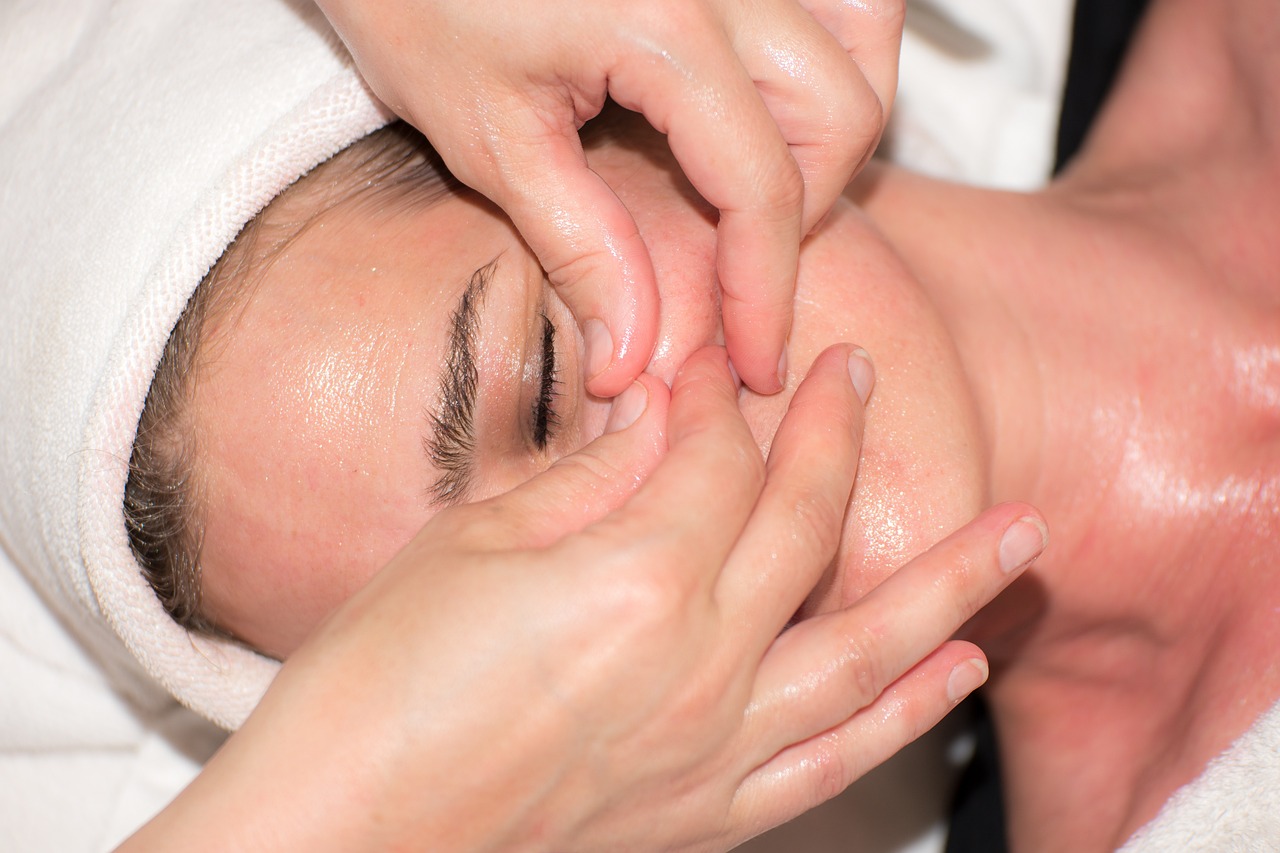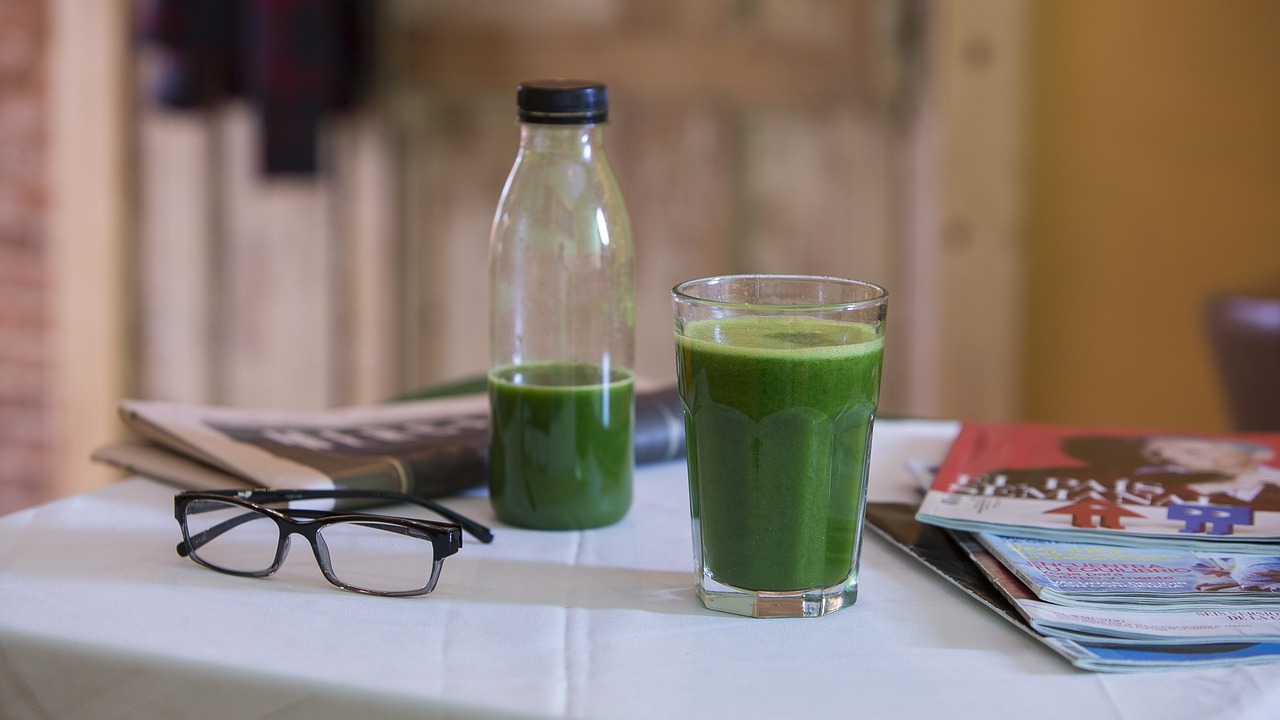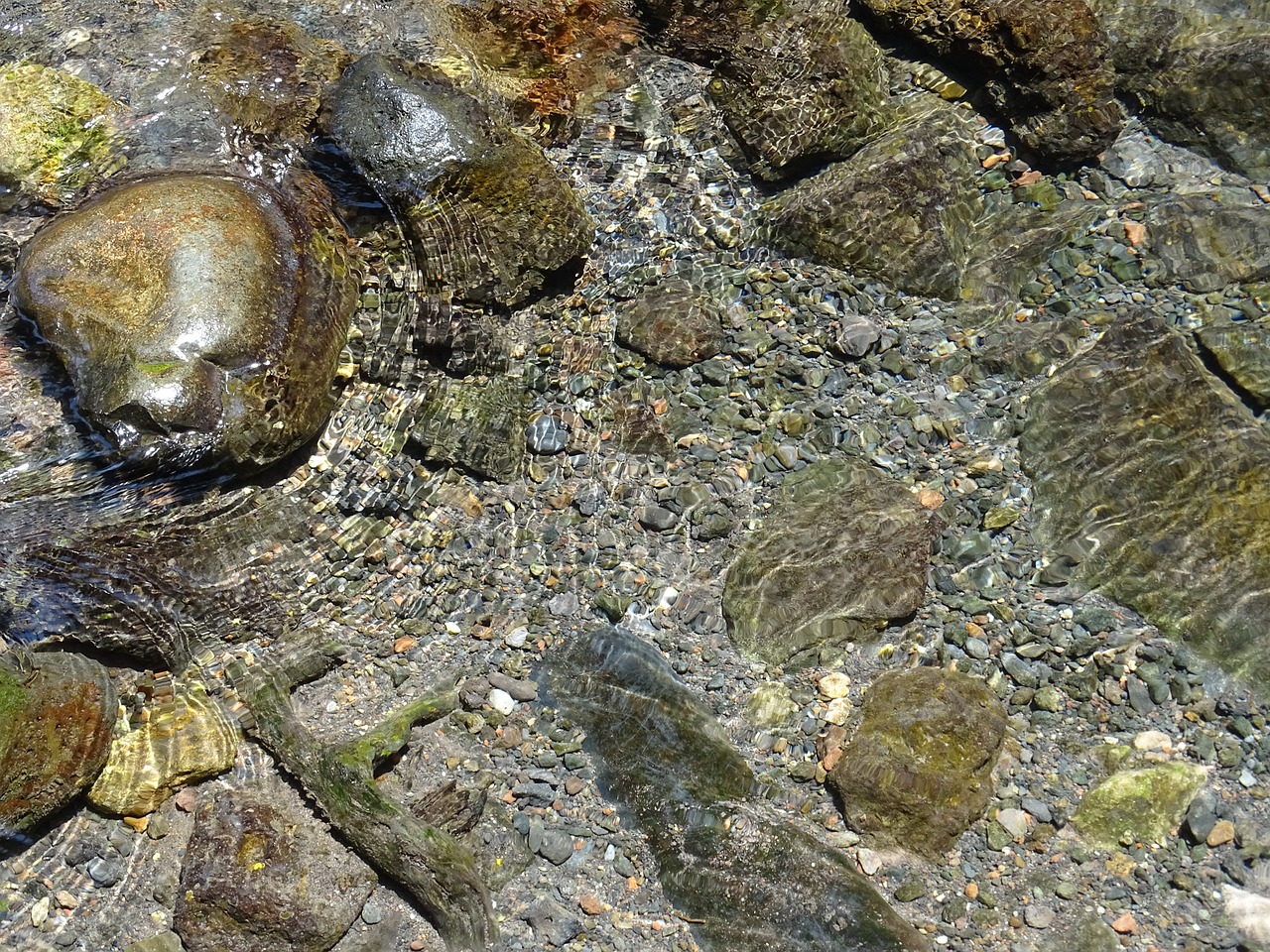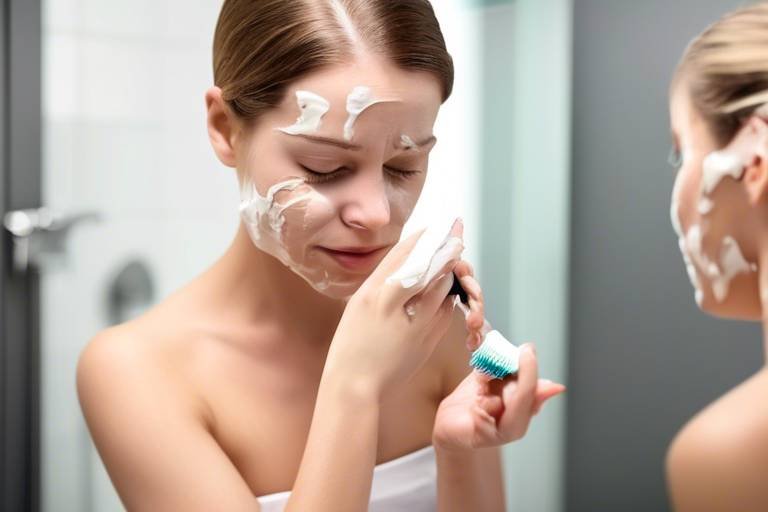The Importance of Hydration for Healthy Skin
When it comes to achieving that radiant, youthful glow, hydration is your best friend. Think of your skin as a sponge—when it's well-hydrated, it bounces back beautifully, but when it’s dry, it becomes brittle and dull. Hydration is not just about drinking water; it’s a multifaceted approach that involves understanding how moisture affects our skin at every level. In this article, we will explore why staying hydrated is essential for maintaining healthy skin, discuss the myriad benefits of proper hydration, and provide practical tips for integrating hydration seamlessly into your daily routine.
Did you know that our skin is the largest organ of our body? That’s right! It’s not just a protective barrier; it plays a critical role in regulating our body temperature and protecting us from environmental toxins. However, this vital organ requires adequate moisture to function optimally. Without proper hydration, our skin can become dry, flaky, and more susceptible to damage. In fact, dehydration can lead to a host of skin issues, including increased sensitivity, irritation, and even premature aging. So, let’s dive deeper into the science behind skin hydration and uncover the secrets to achieving a luminous complexion.
Understanding how hydration affects skin health at a cellular level can help us appreciate its importance. Our skin comprises three main layers: the epidermis, dermis, and hypodermis. The outermost layer, the epidermis, acts as a barrier to protect our body. This layer relies heavily on moisture to maintain its integrity and function. When we hydrate, water molecules penetrate these layers, ensuring that our skin cells remain plump and healthy.
Moreover, hydration facilitates various biological processes that keep our skin moisturized. For instance, it supports the production of natural oils that help lock in moisture, creating a protective barrier against environmental aggressors. Additionally, hydration plays a crucial role in the turnover of skin cells, promoting a fresh and vibrant appearance. Without sufficient water intake, these processes can falter, leading to a dull and lifeless complexion.
Now that we understand the science behind skin hydration, let’s explore the numerous benefits it offers. Proper hydration can:
- Improve Elasticity: Well-hydrated skin is more elastic, which means it can stretch and bounce back more easily.
- Reduce Dryness: Hydration helps combat dryness, keeping your skin smooth and supple.
- Enhance Youthful Appearance: Adequate hydration can diminish the appearance of fine lines and wrinkles, giving you a youthful glow.
These advantages contribute significantly to overall skin vitality. Imagine your skin as a well-watered garden; when it’s nourished, it flourishes, showcasing its natural beauty. On the flip side, a lack of hydration can lead to a parched landscape, where dryness and fine lines become more pronounced. So, keeping your skin hydrated is not just a beauty routine; it's a necessity for maintaining its health and vibrancy.
One of the most noticeable impacts of hydration is on skin elasticity. When our skin is adequately hydrated, it retains its firmness and resilience, which is essential for preventing sagging. Think about it: just like a rubber band that can stretch and snap back, hydrated skin has the ability to maintain its shape and structure. This elasticity is crucial for a youthful appearance, as it helps to combat the natural aging process.
Collagen, a protein that provides structure to our skin, is heavily influenced by hydration levels. When we drink enough water, we support the production of collagen, which in turn contributes to a plump and healthy complexion. Without sufficient hydration, collagen production can slow down, leading to a loss of firmness and an increase in fine lines. So, think of hydration as the foundation for your skin's structural integrity!
Well-hydrated skin is less prone to fine lines and wrinkles. Dehydration can cause the skin to lose its elasticity, making it more susceptible to the signs of aging. By maintaining proper hydration levels, you can keep your skin looking youthful and vibrant. It’s like putting on a moisturizing cream; the more moisture you lock in, the less likely your skin will show those pesky signs of aging.
It’s important to note that different skin types require varying hydration strategies. For example:
- Dry Skin: Needs rich moisturizers and a higher water intake to combat flakiness.
- Oily Skin: Benefits from lightweight, non-comedogenic products that hydrate without clogging pores.
- Combination Skin: Requires a balanced approach, using different products for different areas of the face.
By tailoring your hydration approach to your skin type, you can achieve optimal results and maintain a healthy, glowing complexion.
Staying hydrated is essential for skin health, but how can you ensure you're getting enough water throughout the day? Here are some practical tips:
Certain foods can boost hydration levels significantly. Fruits and vegetables like watermelon, cucumber, and oranges are not only delicious but also packed with water. Incorporating these into your diet can help keep your skin hydrated from the inside out.
Creating a daily hydration routine can enhance skin health. Consider setting reminders to drink water, carrying a reusable water bottle, or even infusing your water with fruits for added flavor. The key is to make hydration a priority in your daily life.
Q: How much water should I drink daily for optimal skin health?
A: While individual needs vary, a general guideline is to aim for at least 8 glasses (64 ounces) of water a day. Adjust based on your activity level and climate.
Q: Can I hydrate my skin with products instead of drinking water?
A: While topical products can help, they cannot replace the internal hydration that comes from drinking water. Both are important for healthy skin.
Q: Are there specific foods that can help improve skin hydration?
A: Yes! Foods high in water content, such as cucumbers, strawberries, and celery, can significantly contribute to your hydration levels.

The Science Behind Skin Hydration
Understanding the science behind skin hydration is like peeling back the layers of an onion; each layer reveals something essential that contributes to the overall health and vitality of our skin. At its core, hydration is not just about drinking enough water; it involves a complex interplay of biological processes that keep our skin properly moisturized and functioning at its best. Our skin, being the largest organ of the body, needs adequate moisture to maintain its barrier function, which protects us from environmental aggressors and helps retain essential nutrients.
When we talk about hydration, we often refer to the skin's ability to retain water. This ability is largely influenced by the outermost layer of the skin, known as the stratum corneum. This layer acts like a protective shield, composed of dead skin cells and lipids. When the stratum corneum is well-hydrated, it remains flexible and resilient, preventing the skin from becoming dry and flaky. However, when hydration levels drop, this barrier can weaken, leading to a myriad of skin issues such as irritation, redness, and premature aging.
Moreover, hydration plays a crucial role at the cellular level. Each skin cell requires water to function optimally, and when cells are dehydrated, they can’t perform their tasks effectively. For instance, a well-hydrated cell can produce essential proteins and lipids that contribute to skin elasticity and firmness. Conversely, a dehydrated cell may struggle to produce collagen and elastin—two proteins vital for maintaining skin structure and elasticity.
One of the most fascinating aspects of skin hydration is its relationship with the skin's microbiome. Our skin is home to trillions of microorganisms that help maintain its health. A well-hydrated skin environment fosters the growth of beneficial bacteria while inhibiting harmful pathogens. This harmonious balance is essential for preventing skin issues such as acne, eczema, and psoriasis.
In summary, the science behind skin hydration is multifaceted. It encompasses everything from the structure of the skin's outer layers to the cellular processes that occur within. Staying hydrated isn't just about drinking water; it's about understanding how hydration affects our skin on a deeper level. When we prioritize hydration, we’re not just investing in our skin’s appearance; we’re nurturing its health from the inside out.
- How much water should I drink daily for optimal skin hydration? While individual needs vary, a general guideline is to aim for at least 8-10 cups of water per day.
- Can I hydrate my skin with products instead of drinking water? Yes, topical moisturizers can help, but they work best in conjunction with adequate water intake.
- What are the signs of dehydrated skin? Signs include dryness, flakiness, tightness, and an overall dull appearance.
- Are there specific foods that can help with skin hydration? Yes, foods high in water content, such as cucumbers, watermelon, and oranges, are particularly beneficial.

Benefits of Proper Hydration
When it comes to maintaining healthy skin, proper hydration is like the secret ingredient in a delicious recipe. Think of your skin as a plant; just as a plant needs water to flourish, your skin craves hydration to stay vibrant and youthful. The benefits of staying hydrated go beyond just quenching your thirst; they play a crucial role in enhancing your skin's overall appearance and health. With every sip of water, you’re not just refreshing yourself; you’re also nourishing your skin from the inside out.
One of the most significant advantages of proper hydration is improved elasticity. When your skin is well-hydrated, it can stretch and bounce back more easily, much like a rubber band. This elasticity is vital for maintaining a firm and youthful appearance. On the flip side, dehydrated skin can lead to sagging and a tired look, which is something none of us want. By drinking enough water daily, you can help your skin maintain its natural firmness and resilience.
Moreover, hydration plays a pivotal role in collagen production. Collagen is the backbone of your skin’s structure, providing support and strength. When you’re adequately hydrated, your body is better equipped to produce collagen, resulting in a plump and healthy complexion. Just imagine collagen as the scaffolding of a building; without it, the structure may crumble. So, keep that hydration flowing to support your skin’s scaffolding!
Another fantastic benefit of staying hydrated is the prevention of fine lines and wrinkles. Dehydrated skin is more prone to developing fine lines, which can make you appear older than you really are. By ensuring you drink enough water, you can keep your skin looking smooth and youthful. Think of hydration as a natural anti-aging remedy; it’s like a fountain of youth right at your fingertips!
In addition to these benefits, proper hydration can also help combat dryness. Dry skin can be uncomfortable and lead to flakiness, irritation, and even breakouts. By staying hydrated, you can help maintain your skin’s moisture balance, ensuring it stays soft and supple. It’s like applying a moisturizer from the inside out!
To summarize, the benefits of proper hydration for your skin include:
- Improved elasticity: Keeps skin firm and youthful.
- Enhanced collagen production: Supports skin structure and plumpness.
- Prevention of fine lines: Helps maintain a smooth appearance.
- Combat dryness: Ensures skin remains soft and supple.
In conclusion, staying hydrated is not just about drinking water; it’s about giving your skin the love it deserves. By making hydration a priority, you’re investing in your skin’s health and beauty. So, grab that water bottle and start sipping your way to radiant skin!
Q: How much water should I drink daily for optimal skin hydration?
A: While individual needs may vary, a common recommendation is to drink at least 8 glasses (64 ounces) of water a day. However, factors like activity level, climate, and individual health can affect your hydration needs.
Q: Can I hydrate my skin by just drinking water?
A: Drinking water is essential, but it’s also important to incorporate hydrating foods into your diet, such as fruits and vegetables, to enhance your skin’s hydration levels.
Q: What are some signs of dehydrated skin?
A: Signs of dehydrated skin include dryness, flakiness, tightness, and the appearance of fine lines. If you notice these symptoms, increasing your water intake may help.
Q: Can I overhydrate my skin?
A: While it’s rare, overhydration can occur. It’s essential to find a balance that works for your body and skin type to avoid any adverse effects.
Impact on Skin Elasticity
When we talk about skin elasticity, we're diving into a crucial aspect of skin health that often gets overlooked. Think of your skin as a rubber band; when it's well-hydrated, it stretches and snaps back with ease, maintaining its youthful bounce. However, when hydration levels drop, that rubber band becomes brittle and loses its ability to return to its original shape. This is why hydration is not just a beauty tip—it's a fundamental requirement for keeping your skin looking and feeling its best.
Hydration plays a vital role in maintaining the skin's firmness and resilience. Adequate water intake helps to plump up skin cells, making them appear fuller and more vibrant. When your skin is adequately hydrated, it can better resist the effects of aging, such as sagging and fine lines. In fact, studies have shown that individuals who maintain proper hydration levels tend to have more elastic skin, which is crucial for a youthful appearance.
But what exactly contributes to this elasticity? One of the key players is collagen, a protein that acts as the building block for our skin. Collagen fibers give skin its strength and structure. When we're dehydrated, collagen production can slow down, leading to a decrease in skin elasticity. This is where drinking enough water becomes not just a good idea but a necessity. The more hydrated you are, the better your body can produce collagen, keeping your skin firm and youthful.
Moreover, hydration affects the skin's ability to repair itself. When skin cells are well-hydrated, they can regenerate more effectively, leading to a smoother and more elastic surface. On the flip side, dry skin can become flaky and rough, making it more prone to developing fine lines and wrinkles. So, if you're looking to maintain that youthful glow, think of hydration as your skin's best friend.
To further illustrate the relationship between hydration and skin elasticity, here’s a quick overview:
| Hydration Level | Skin Elasticity | Appearance |
|---|---|---|
| Well-Hydrated | High | Plump, youthful, and smooth |
| Moderately Hydrated | Medium | Somewhat firm, slight dullness |
| Dehydrated | Low | Dry, sagging, and prone to wrinkles |
In conclusion, if you want to keep your skin looking youthful and elastic, make hydration a priority. It's not just about drinking water; it’s about creating a holistic approach to skin care that includes both internal hydration and external moisturizing. Remember, your skin is your body’s largest organ, and it deserves all the love and care you can give!
- How much water should I drink daily for healthy skin?
It's generally recommended to drink at least 8 glasses (about 2 liters) of water daily, but individual needs may vary based on factors like activity level and climate. - Can I hydrate my skin without drinking water?
Yes! Incorporating hydrating foods like cucumbers, watermelon, and oranges can help boost your hydration levels, along with topical moisturizers. - Does drinking coffee or alcohol affect skin hydration?
Yes, both can have a dehydrating effect on your skin. It’s essential to balance these beverages with ample water intake.
Role of Collagen Production
Collagen is like the backbone of our skin; it provides structure, elasticity, and strength. When we think about healthy skin, we can't overlook the importance of collagen production. This protein is naturally found in our bodies, but as we age, its production starts to decline. The result? Skin that can appear saggy, less plump, and more prone to wrinkles. But did you know that hydration plays a pivotal role in supporting collagen production? That's right! When our bodies are well-hydrated, the skin cells can function optimally, which includes producing collagen effectively.
Imagine your skin as a sponge. When it’s dry, it becomes brittle and less effective at holding its shape, just like a dried-out sponge that crumbles when you try to use it. However, when the sponge is soaked with water, it expands and becomes more resilient. Similarly, when your skin is adequately hydrated, it can maintain its elasticity and firmness, which directly influences collagen levels. In fact, studies have shown that dehydration can lead to a significant reduction in collagen production, making it even more crucial to drink enough water and consume hydrating foods.
Moreover, hydration aids in the transportation of essential nutrients and oxygen to skin cells, promoting a healthy environment for collagen synthesis. Without sufficient hydration, the skin may not only look dull and lifeless but also struggle to repair itself. This is particularly important for people with dry or aging skin, as they often experience a more pronounced decline in collagen levels. By ensuring that your body is well-hydrated, you are essentially giving your skin the tools it needs to produce collagen efficiently.
To further illustrate the importance of hydration in collagen production, consider the following table:
| Hydration Level | Collagen Production | Skin Appearance |
|---|---|---|
| Low | Decreased | Dull, sagging, prone to wrinkles |
| Moderate | Maintained | Firm, resilient, youthful |
| High | Enhanced | Plump, vibrant, healthy |
In conclusion, if you want to keep your skin looking its best, prioritize hydration. It's not just about quenching your thirst; it's about nourishing your skin from the inside out. By drinking enough water and incorporating hydrating foods into your diet, you can support collagen production and enjoy a youthful, radiant complexion for years to come.
- How much water should I drink daily for optimal skin health? A general guideline is to aim for at least 8 glasses (64 ounces) of water a day, but individual needs may vary based on activity level and climate.
- Can I hydrate my skin topically? Yes! Using moisturizers and serums that contain hyaluronic acid can help draw moisture into the skin, complementing your internal hydration efforts.
- Are there specific foods that help with skin hydration? Absolutely! Foods like cucumbers, watermelon, oranges, and leafy greens are excellent for maintaining hydration levels.
Prevention of Fine Lines
When it comes to keeping our skin looking youthful, hydration plays a pivotal role in preventing fine lines and wrinkles. Think of your skin like a sponge; when it’s well-hydrated, it remains plump and elastic, much like a fresh, juicy fruit. On the other hand, when hydration levels drop, the skin can become dry and brittle, leading to the formation of those pesky lines that can make us look older than we feel. It's fascinating to realize that the skin's outer layer, the epidermis, relies heavily on moisture to maintain its integrity and smoothness.
Research shows that adequate hydration can significantly reduce the appearance of fine lines. When our skin cells are well-hydrated, they can function optimally, promoting cell turnover and allowing new, healthy skin cells to surface. This process not only helps in reducing the visibility of existing lines but also prevents new ones from forming. Moreover, hydration enhances the skin's barrier function, which means it can better retain moisture and fend off environmental stressors that contribute to aging.
To illustrate the impact of hydration on fine lines, consider this: a study found that individuals who consume sufficient water daily reported a noticeable improvement in skin texture and elasticity. In contrast, those who were dehydrated often experienced more pronounced fine lines and a dull complexion. This connection between hydration and skin health highlights the importance of not just drinking water but also incorporating water-rich foods into our diets.
Here are some tips to keep your skin hydrated and help prevent fine lines:
- Drink plenty of water: Aim for at least eight 8-ounce glasses a day, and remember that your needs may vary based on activity level and climate.
- Use a humidifier: Especially in dry environments, adding moisture to the air can help keep your skin hydrated.
- Incorporate hydrating skincare products: Look for ingredients like hyaluronic acid and glycerin, which attract moisture to the skin.
In summary, maintaining adequate hydration is essential not only for overall health but also for the youthful appearance of our skin. By being proactive about our hydration habits, we can significantly reduce the risk of developing fine lines and enjoy a radiant, youthful glow for years to come.
Q: How much water should I drink daily for optimal skin hydration?
A: While the general guideline is to drink at least eight 8-ounce glasses of water a day, individual needs can vary based on factors like activity level, climate, and personal health. Listen to your body and adjust accordingly.
Q: Can I hydrate my skin from the outside?
A: Absolutely! Using hydrating skincare products, such as moisturizers containing hyaluronic acid, can help retain moisture in the skin. Additionally, incorporating hydrating serums and regularly applying sunscreen can protect against moisture loss.
Q: Are there specific foods that can help with skin hydration?
A: Yes! Foods high in water content, such as cucumbers, watermelon, oranges, and leafy greens, can significantly contribute to your hydration levels and promote healthy skin.
Hydration for Different Skin Types
When it comes to skin care, one size does not fit all. Just like our personalities, our skin types are unique and require tailored hydration strategies to thrive. Understanding your skin type is crucial in determining how to keep it hydrated effectively. Whether your skin is dry, oily, or a combination of both, the right hydration approach can make all the difference in achieving that coveted glow.
For those with dry skin, hydration is not just beneficial; it's essential. Dry skin lacks moisture and can often feel tight and uncomfortable. To combat this, it's important to not only drink plenty of water but also to use hydrating products that contain ingredients like hyaluronic acid and glycerin. These ingredients help attract moisture to the skin, locking it in for a plump and dewy appearance. Additionally, incorporating a thick moisturizer can create a barrier that prevents water loss, ensuring that your skin stays hydrated throughout the day.
On the other hand, if you have oily skin, you might think that hydration is less important. However, this is a common misconception. Even oily skin needs hydration; the key is to choose the right products. Lightweight, oil-free moisturizers can provide the necessary hydration without clogging pores. Look for gel-based formulas that hydrate while keeping excess oil at bay. It's also beneficial to include ingredients like salicylic acid, which can help control oil production while keeping your skin balanced and hydrated.
For those with combination skin, the hydration strategy can be a bit trickier. This skin type often has dry patches along with oily areas, so a dual approach is necessary. You might consider using a heavier moisturizer on the dry areas while opting for a lighter, gel-like product for the oily zones. Additionally, incorporating hydrating serums can provide an extra layer of moisture without overwhelming the skin. It's all about finding the right balance and listening to what your skin needs.
To summarize, here’s a quick look at hydration strategies for different skin types:
| Skin Type | Hydration Strategy |
|---|---|
| Dry Skin | Use thick moisturizers with hyaluronic acid and glycerin. |
| Oily Skin | Opt for lightweight, oil-free moisturizers and gel-based products. |
| Combination Skin | Use different products for different areas; heavier moisturizers for dry patches and lighter ones for oily zones. |
Ultimately, understanding your skin type and adjusting your hydration methods accordingly can lead to healthier, more radiant skin. Don't forget that hydration isn't just about drinking water; it's about how you care for your skin as well. So, be attentive to your skin's needs, and you'll be well on your way to achieving that glowing complexion!
- How much water should I drink for healthy skin?
It's generally recommended to drink at least 8 glasses (about 2 liters) of water a day, but individual needs can vary based on activity level and climate. - Can I hydrate my skin without drinking water?
Yes! Using hydrating skincare products like moisturizers and serums can help retain moisture in your skin. - Is it possible to over-hydrate my skin?
While drinking too much water can lead to a condition called water intoxication, over-hydrating your skin with products can lead to clogged pores and breakouts.

Tips for Staying Hydrated
Staying hydrated is not just about drinking water; it’s a holistic approach to nurturing your skin from the inside out. Think of hydration as the foundation of a house; without a solid base, everything else can crumble. So, how do we ensure that our skin receives the moisture it craves? Here are some practical tips that can seamlessly integrate into your daily routine, making hydration a breeze.
First off, it’s essential to set a daily water intake goal. A common recommendation is to aim for at least 8 glasses of water a day, but this can vary based on your activity level, climate, and individual needs. To make this easier, consider carrying a reusable water bottle with you. This not only serves as a reminder to drink water but also helps track your intake throughout the day. You might be surprised at how quickly you can reach your goal just by sipping regularly!
Next, let’s talk about the power of hydrating foods. Did you know that many fruits and vegetables have high water content? Incorporating these into your meals can significantly boost your hydration levels. For instance, consider adding items like:
- Watermelon
- Cucumbers
- Strawberries
- Oranges
- Celery
These foods not only quench your thirst but also provide vital nutrients that keep your skin looking radiant. Imagine biting into a juicy watermelon on a hot day; it’s refreshing and hydrating all at once!
Another effective strategy is to establish a hydration routine. Just as you might have a morning or evening skincare regimen, consider incorporating hydration into your daily habits. For example, drink a glass of water first thing in the morning to kickstart your metabolism and hydrate your body after a night’s sleep. You can also set reminders on your phone or use hydration apps to prompt you to drink water at regular intervals. This way, you’ll create a habit that becomes second nature over time.
Lastly, pay attention to your skin’s signals. If you notice it feeling tight or looking dull, it might be time to increase your water intake. Listening to your body is crucial; after all, it often knows what it needs better than we do. Remember, hydration isn’t a one-time effort; it’s a continuous journey that requires attention and care.
Q: How can I tell if I'm dehydrated?
A: Common signs of dehydration include dry mouth, fatigue, dizziness, and dark yellow urine. If you notice these symptoms, it’s a good idea to increase your water intake.
Q: Can I drink other beverages instead of water?
A: While water is the best option, other beverages like herbal teas or infused waters can also contribute to your hydration. Just be cautious with sugary drinks and caffeine, as they can have dehydrating effects.
Q: How does climate affect my hydration needs?
A: Hot and humid weather can increase your hydration needs, as you lose more fluids through sweat. In contrast, dry, cold climates can also lead to increased water loss through your skin. Adjust your water intake according to your environment.
Q: Is there such a thing as over-hydration?
A: Yes, while it’s rare, drinking excessive amounts of water can lead to a condition called hyponatremia, where sodium levels in your blood become dangerously low. It’s essential to balance your intake and listen to your body.
Incorporating Hydrating Foods
When it comes to keeping our skin looking radiant and healthy, hydration isn't just about drinking enough water. One of the most enjoyable ways to boost your hydration levels is by incorporating hydrating foods into your diet. Imagine your skin soaking up moisture like a sponge; that’s exactly what happens when you consume foods that are rich in water content. These foods not only help quench your thirst but also provide essential vitamins and minerals that support skin health.
So, what kind of foods should you be looking for? Think of fruits and vegetables that are not only delicious but also packed with water. For instance, cucumbers, which are composed of about 95% water, are a fantastic choice. They can be added to salads, blended into smoothies, or simply enjoyed as a crunchy snack. Similarly, watermelon is another hydrating powerhouse, making it perfect for hot summer days. It’s not just refreshing; it also contains antioxidants that help fight skin damage.
But it doesn’t stop there! Here’s a quick rundown of some other hydrating foods that can make a significant difference in your skin's health:
- Strawberries: These juicy berries are not only sweet but also contain about 91% water. They’re rich in vitamin C, which is essential for collagen production.
- Celery: With a water content of around 95%, celery is perfect for snacking. Plus, it’s low in calories!
- Oranges: These citrus fruits are not only hydrating but also packed with vitamin C, which helps brighten your skin.
Incorporating these foods into your daily meals can be as simple as adding some sliced strawberries to your breakfast cereal or tossing some cucumber slices into your sandwich. The key is to make hydration a part of your lifestyle. You can create colorful salads, refreshing smoothies, or even hydrating soups that keep your skin glowing.
Moreover, it’s important to remember that the benefits of hydrating foods go beyond just skin health. They can also assist in digestion, promote weight loss, and keep your energy levels high. So, not only will you be doing your skin a favor, but you’ll also be nurturing your overall health.
In conclusion, incorporating hydrating foods into your diet is a delicious and effective way to enhance your skin's hydration levels. It’s all about making smart choices that not only satisfy your taste buds but also contribute to a vibrant, youthful complexion. So, go ahead and explore the world of hydrating foods; your skin will thank you!
1. How much water should I drink daily for optimal skin health?
Most experts recommend drinking at least 8 cups (64 ounces) of water a day, but your individual needs may vary based on activity level and climate.
2. Can hydrating foods replace water intake?
While hydrating foods are beneficial, they shouldn’t completely replace water intake. They should complement your hydration efforts.
3. Are there any specific foods to avoid for skin health?
Highly processed foods and those high in sugar can lead to inflammation and skin issues. It's best to limit these in favor of whole, hydrating foods.
4. How quickly can I see results from improving my hydration?
You may notice improvements in your skin's texture and appearance within a few days to weeks of increasing your hydration levels.
Establishing a Hydration Routine
Creating a consistent hydration routine is like building a solid foundation for your skin health. Just as a house needs a strong base to stand tall, your skin requires regular hydration to maintain its vitality and glow. But how do you establish this routine? It’s simpler than you might think! Start by setting clear goals for your daily water intake. Aim for at least 8 glasses of water a day, but remember, individual needs can vary based on factors like activity level and climate. Keeping a reusable water bottle handy can serve as a constant reminder to sip throughout the day.
To make this routine more effective, try incorporating hydration into your daily habits. For instance, drink a glass of water first thing in the morning to kickstart your metabolism and hydrate your body after a night’s rest. Pair this with your meals; drinking water before and during meals can not only help with digestion but also ensure you’re getting enough fluids. Additionally, consider setting alarms on your phone to remind you to drink water at regular intervals. It sounds a bit silly, but those gentle nudges can be incredibly helpful!
But hydration isn’t just about drinking water; it’s also about the foods you consume. Incorporate fruits and vegetables with high water content into your meals. Foods like cucumbers, watermelon, oranges, and strawberries can significantly contribute to your hydration levels. Not only do they add flavor and variety to your diet, but they also provide essential vitamins and minerals that keep your skin looking fresh and vibrant. You can even create a colorful fruit salad or a refreshing smoothie to make hydration enjoyable!
Another tip is to track your water intake using apps or journals. This can help you visualize your progress and maintain accountability. You might be surprised at how easy it is to forget to drink water amidst a busy day! By keeping a record, you can identify patterns and adjust your habits accordingly. Don't forget to listen to your body; thirst is a natural indicator that you need more fluids. If you’re feeling fatigued or experiencing dry skin, it’s time to up your hydration game!
Lastly, consider your environment. If you live in a dry climate or spend a lot of time in air-conditioned spaces, you might need to increase your water intake. Humidity plays a significant role in skin hydration, so be mindful of how your surroundings affect your skin. Using a humidifier can also help maintain moisture levels in the air, which can benefit your skin immensely.
- How much water should I drink daily? While the common recommendation is 8 glasses (about 2 liters), your individual needs may vary based on activity level and climate.
- Can I hydrate my skin from the outside? Yes! Using hydrating moisturizers and serums can help lock in moisture, but it’s essential to hydrate from within too.
- What are some signs of dehydration? Symptoms include dry skin, fatigue, headaches, and dizziness. If you notice these signs, increase your fluid intake.
- Are there any foods that help with hydration? Absolutely! Foods like cucumbers, watermelon, oranges, and celery are great for boosting hydration levels.
Frequently Asked Questions
- Why is hydration important for skin health?
Hydration is crucial for maintaining skin elasticity, preventing dryness, and promoting a youthful appearance. When your skin is well-hydrated, it looks plump and vibrant, while dehydration can lead to dullness and premature aging.
- How does hydration affect different skin types?
Each skin type has unique hydration needs. For example, dry skin often requires more moisture-rich products, while oily skin may benefit from lightweight, hydrating formulas. Tailoring your hydration approach to your skin type can enhance overall skin health.
- What are some effective tips for staying hydrated?
To stay hydrated, aim to drink plenty of water throughout the day, incorporate hydrating foods like cucumbers and watermelon into your diet, and establish a hydration routine. Setting reminders can also help you remember to drink water regularly.
- Can certain foods help with skin hydration?
Absolutely! Foods high in water content, such as fruits and vegetables, can significantly boost your hydration levels. Examples include strawberries, oranges, and leafy greens, which not only hydrate but also provide essential vitamins for skin health.
- How does hydration support collagen production?
Hydration plays a vital role in collagen synthesis, which is essential for maintaining skin structure and firmness. When your body is well-hydrated, it can produce collagen more effectively, helping to keep your skin smooth and youthful.
- What happens to my skin if I don't drink enough water?
Insufficient water intake can lead to dry, flaky skin, increased fine lines, and a dull complexion. Over time, chronic dehydration may contribute to more serious skin issues, making it essential to prioritize hydration for healthier skin.
- Is it possible to overhydrate?
While it's important to stay hydrated, it's also possible to overhydrate, which can lead to a condition called hyponatremia. This occurs when the sodium levels in your blood become too diluted. It's best to drink water in moderation and listen to your body's thirst signals.



















